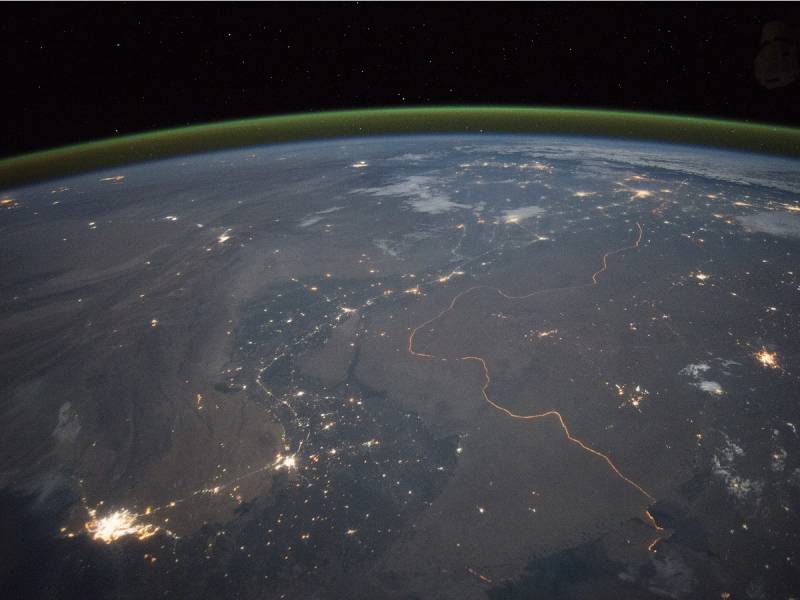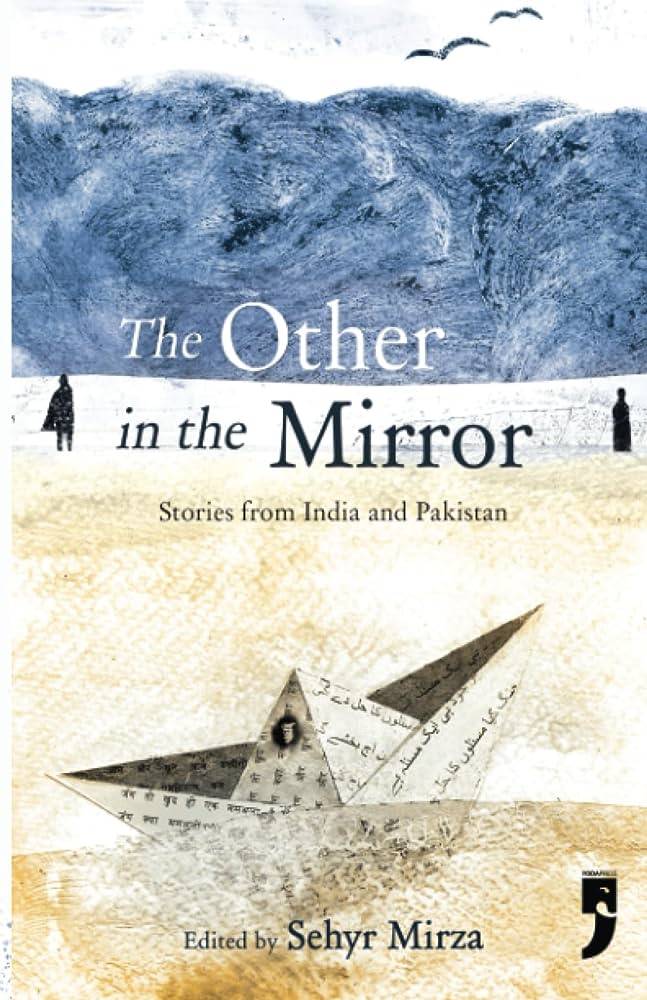
The Other In The Mirror is a delightfully diverse anthology of 21 stories by celebrated writers from India and Pakistan, edited by Lahore-based writer, journalist and activist Sehyr Mirza. The ease with which the collection juxtaposes stories that simultaneously celebrate and mourn the dysfunctional dynamics between the two countries, without succumbing to either despair or misplaced optimism, indicates the editor’s literary acumen that lends itself well to the curation of an anthology of this scope.
Like any book featuring stories from the two countries, the shadow of Partition looms large – sometimes vividly coming alive through characters and situations that undergo it’s cataclysmic events first hand, at others, as an evocative subtext. Despite that, it would be unfair and rather lazy to term it as yet another Partition book, because it is a whole lot more.
From talking of mental health issues in a highly readable manner in "Love During Armistice" by Anirudh Kala, the plight of hapless fishermen who have to navigate a world where even water bodies are marked with borders in "Paperboats" by Atif Aleem or Dushyant’s "Mind Your Language" presenting a futuristic scenario where speaking certain languages becomes a punishable offence - a chilling possibility in today’s India - to a nuclear apocalypse painted in a surprisingly relatable manner in "New Directions" by Uma Krishnaswamy, the anthology deals in themes that are as timeless as they are contemporary. There is also a whole lot of nostalgia for people, places and for innocence lost forever fraught, as it always is, with unexorcised ghosts of the past in stories like "Shanti of Guru Mandir" by Amra Alam. And "Tears from the River" by Saaz Agarwal. Still others, like "Unsistered" by Shahbano Bilgrami and "Genes" by Kausar Jamal talk of the fragility of relationships whilst exuding a stripped-down simplicity that will surely endear itself to readers.
The anthology is a deeply personal labour of love, as is evident from the foreword, where the editor makes a compelling case for the power of storytelling (through memories of her late grandmother) in keeping people rooted across the divides of time, culture and geography. The book is an attempt to take this glorious tradition forward.
My favourite stories from the collection are "Crossing the Ravi," "A Snowful Desire" and "Saathi." "Crossing the Ravi" has been written by legendary poet, lyricist, filmmaker and master storyteller Gulzar - who famously said "Agar Hindustan mera desh hai tau Pakistan mera watan" - paints a vivid picture of the horrors of Partition and the subsequent mass migration, through the story of newborn twins on a train full of cross border refugees. The horror, that is likely to haunt the reader for days to follow, comes as much from the fate of the newborns, as it does from the sheer contrast between the gut wrenching tragedy on the one hand, and the celebratory slogans, that the story concludes with, on the other. It is not difficult to see how a parallel is drawn between Darshan Singh’s ill-fated twins from the story and the newly born nations themselves- the midnight children lacerated by one stroke of an Englishman’s pen. Moreover, it also reflects the sheer inanity of Independence Day celebrations on both sides, commemorating in copious gunfire and pompous parades, a legacy of genocide and continued heartbreak.
Another favourite, "A Snowful Desire" by Pakistani writer and intellectual Saeed Ahmad, is the story of a young boy tantalised by a range of snowcapped peaks, not far into the distance. So acute is this fixation that his eyes turn bloodshot as a result, but the obsession doesn’t wane. The climax packs a whole punch with the collision of heartbreak, unfulfilled desire and the irony of the object of one’s affection being 'so near yet so far,' given a whole new meaning. This story also struck a personal chord, having spent my childhood not too far from the story’s setting, as well as the gradual realisation of the logic-defying, love-hate relationship with lands that had seemed so hostile and far away, actually being in such close proximity.
In “Saathi” by Shazaf Fatima Haider, young soldiers stationed across both sides of the Line of Control find solace in each other’s company, as they face inclement circumstances and exchange shared memories of cricket matches and much more, that only someone from both the counties can fully comprehend. Events take a turn for the worse and the story ends on a heartbreaking note. What makes the story such a favourite, is how organic and authentic the kaleidoscope of emotions evoked is, from the beginning right to the end. Having only read her debut novel, the thoroughly entertaining "How It Happened," Shazaf proves her mettle, in an entirely different genre, as a storyteller of great sensitivity.
The book’s editor, Sehyr Mirza has also contributed an original story "The Ghost," where a ghostly presence -by turns Hindu and Muslim, depending on what side of the border you are - terrorises the population of twin border towns. How the ghost is used as a metaphor for othering, projection and unprocessed trauma, that the region has been plagued with for decades, is remarkably effective in its subtlety. Take, for example, the concluding line, "And that’s how, gradually, the fear of the ghost became larger than the ghost itself.”
 One of the most striking aspects about the collection is how, despite dealing with themes that are sweeping and all encompassing, the stories themselves are brief, spanning no more than 10 pages at the maximum. However, so forceful is the writing and so skillful the translations, that they fully suck the reader into their complex world, providing more insight than much longer texts might. Special mention must also be made of the illustrations by Bangalore based artist Priya Kuriyan, that add further depth and nuance to the stories.
One of the most striking aspects about the collection is how, despite dealing with themes that are sweeping and all encompassing, the stories themselves are brief, spanning no more than 10 pages at the maximum. However, so forceful is the writing and so skillful the translations, that they fully suck the reader into their complex world, providing more insight than much longer texts might. Special mention must also be made of the illustrations by Bangalore based artist Priya Kuriyan, that add further depth and nuance to the stories.
The Other in the Mirror will prove to be a valuable resource for anyone in the process of unlearning hate and indoctrination and re-learning the truth about the ever-present ‘other in the mirror’. Just as importantly, it is a soaring chronicle of all that was lost but will not be forgotten any time soon.

